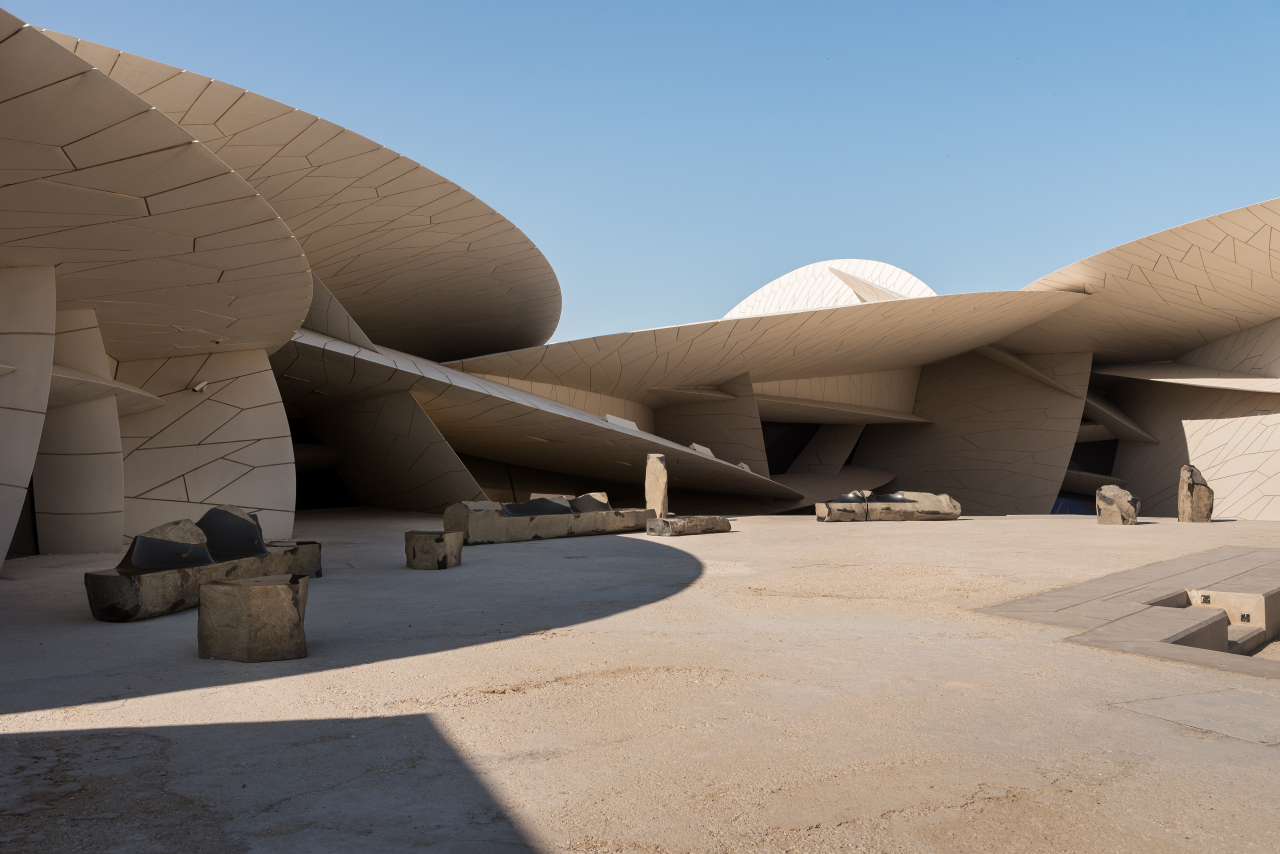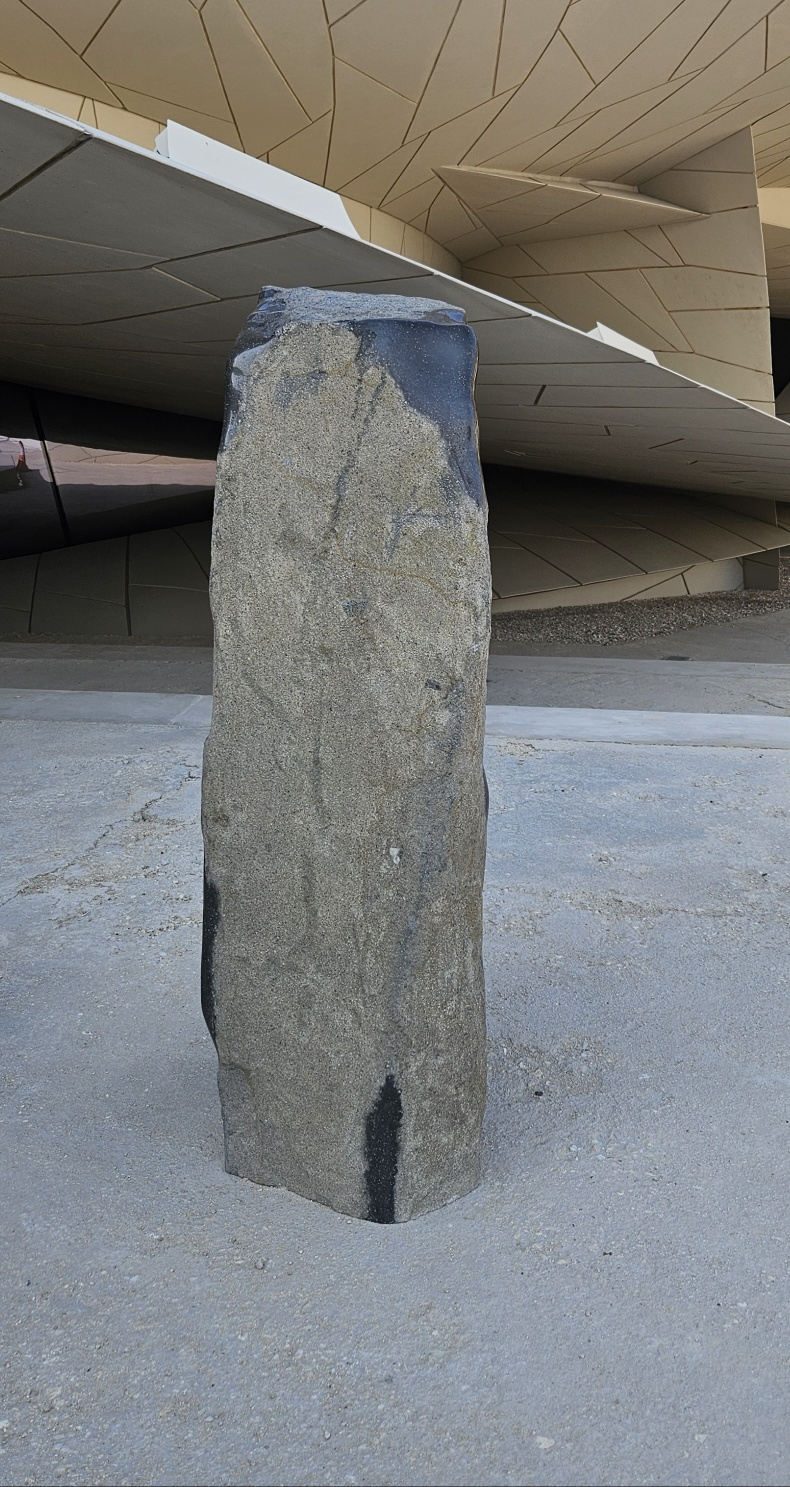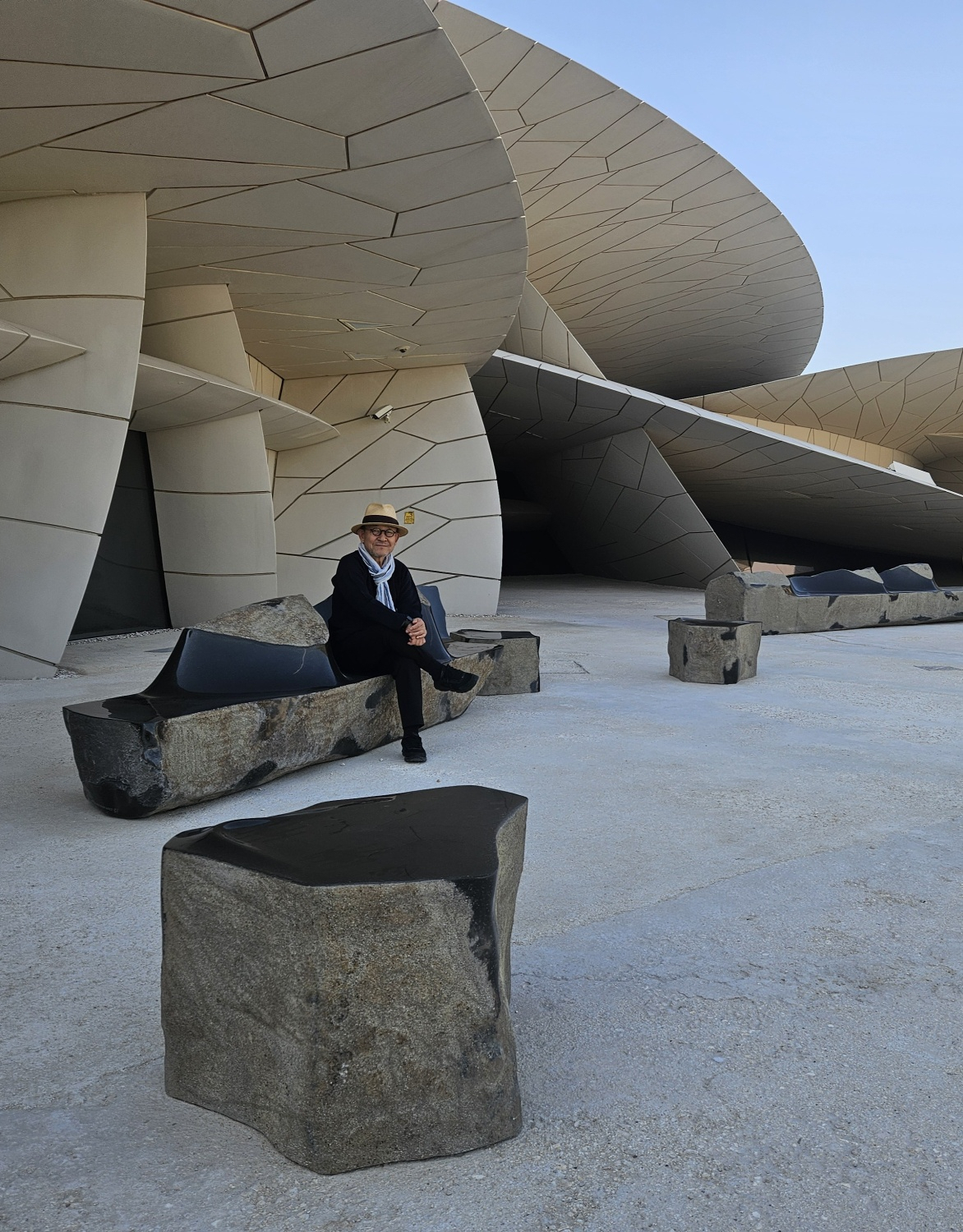 |
An installation view of "Afterimage of the Beginning 2023" by Choi Byung-hoon at the National Museum of Qatar. (Courtesy of Julián Velásquez, Qatar Museums, Design Doha 2024) |
DOHA, Qatar -- Strolling outside the National Museum of Qatar, pieces of black basalt just outside the museum entrance come into sight -- seemingly rough but polished, the installation looks like artwork and, at the same, like chairs.
The installation "Afterimage of the Beginning 2023," collected by the museum, was created by Korean artist Choi Byung-hoon who pioneered his own genre of art, so-called “art furniture,” and has pursued it for the past 30 years.
The work was installed at the desert rose-inspired museum designed by Pritzker-winning French architect Jean Nouvel, coinciding with the inaugural biennale Design Doha 2024 that kicked off on Feb. 24. It was installed two weeks ahead of the design biennale opening.
“It took hundreds of millions of years to create the work, I would say,” the artist told The Korea Herald on Feb. 25 at the museum, looking at the stones that each weigh 5 tons or less.
“After lava spewed out, the Earth’s mantle turned solid, becoming black rock. Then it was buried for hundreds of millions of years, hidden under dirt. The basalt holds an unimaginable amount of time, and it came to me passing through those times,” he said.
 |
Part of "Afterimage of the Beginning 2023" by Choi Byung-hoon (ParkYuna/The Korea Herald) |
When he became a professor at Hongik University in 1990, a prestigious university for art in Seoul, he came up with the concept of “art furniture.” In 1993, he held his first solo exhibition showing the concept he pioneered in the country which, he said, was influenced by postmodernism that prevailed in the mid-20th century Western design.
“It is furniture but at the same time, it is an artwork. If you sit on the stones, they become furniture. If you stand up and take a look around the stones, they become sculptures,” Choi said.
When it comes to modernism in design, mass production was made for a practical reason, and design was anonymous. Postmodernism, which emerged against modernism that had prevailed for a century, values the aesthetic sense of each designer, Choi explained.
“In postmodernism, designers gave up 40 to 50 percent in practicality while pursuing their own sense of beauty,” he said.
 |
Choi Byung-hoon poses for a photo sitting on his sculpture "Afterimage of the Beginning 2023" on Feb. 25 at the National Museum of Qatar in Doha, Qatar. (Park Yuna/The Korea Herald) |
For "Afterimage of the Beginning 2023," Choi brought the stones from a mine located about a six-hour drive from Jakarta, Indonesia. While Jeju Island, South Korea’s southern island, is also known for its basalt, Choi said, it is rather soft and has many pores on its surface.
“These stones I found in Indonesia, they looked unique to me as they are really hard because they are rich in iron. Although they are categorized as basalt, they hold different characteristics. These stones I used, I simply polished them without applying any coating materials, but they are glossy and shiny on their own.
“The basalt stones were reborn as art furniture where a mix of the past of the stones and contemporary art with my touch coexist,” he said.
Choi will present art furniture featuring basalt at a solo exhibition scheduled to take place in May 2025 at Friedman Benda Gallery in New York.







![[Today’s K-pop] Blackpink’s Jennie, Lisa invited to Coachella as solo acts](http://res.heraldm.com/phpwas/restmb_idxmake.php?idx=644&simg=/content/image/2024/11/21/20241121050099_0.jpg)